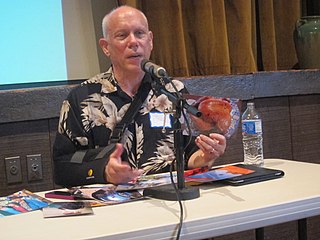A Quote by Mike Davidson
For most of the '90s and the first part of this decade, content providers who wanted to publish online only needed to worry about the graphical web browser.
Related Quotes
What I saw quite clearly in the '80s, before the internet, was that the whole world was shifting toward digital formats, and that didn't matter whether it's movies or writing or whatever. It was something that was coming. And with the invention of the World Wide Web in the early '90s, when we were teaching our first courses, or the arrival of the internet by way of the browser, which opened up the internet to everybody - soon it was just revolutionary.
Some millennials have completely stopped watching TV. So for them, we've created special digital content for handheld devices only. We've paid close attention to how to present online content effectively. We try to catch their attention within the first five seconds - otherwise, they click onto a different content.
During its retransmission dispute, CBS pulled its signal off of certain cable TV systems - and also blocked all Time Warner broadband customers from accessing CBS's Web-based content, even outside the territory of dispute. This is precisely the kind of content-blocking broadband providers are so often accused of but aren't actually doing.


































